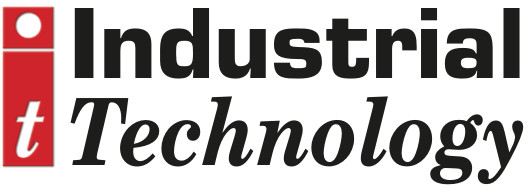
Posted to News on 3rd Jun 2025, 09:20
The time is now for industrial energy efficiency
In a new whitepaper, ABB has set out the scale of the challenge facing the global industrial sector and emphasises the critical role of industrial energy efficiency in meeting rising energy demand while strengthening energy security and affordability and driving industrial competitiveness.

With 45% of the world's electricity converted by industrial electric motors into motion, industrial energy efficiency is a part of the solution that cannot be overlooked.
Launched ahead of a meeting of global decision makers at the International Energy Agency's 10th Annual Global Conference on Energy Efficiency in Brussels, on June 12-13, the whitepaper identifies the scale of untapped potential for energy efficiency in the industrial sector.
The rapid adoption of higher-efficiency motors, pairing of motors with drives, insights from energy audits, and optimised digitalisation and connectivity are identified as key targets for industry. Greater investment and clear regulation are also urgently needed to facilitate the scaling up of essential technologies to advance the energy transition.
In 2024, global energy demand grew by 2.2%, outpacing the global average over the last decade. Nearly 40% of this growth was driven by the industrial sector, while industrial electricity use increased by 4%. Despite these significant increases, the energy efficiency of motors and drives has been neglected in comparison with other sustainable energy solutions.
In a clear action plan, ABB calls on policymakers to increase their cooperation with the private sector. Policymakers must encourage industries to adopt efficient technologies through incentives, subsidies, and tax breaks, addressing the growing unforeseen demands on energy grids from data centres and AI.
Erich Labuda, Division President, ABB Motion Services, said: "Around the world, rising energy demand, climate pressure, and geopolitical instability are converging to create an urgent need for smarter energy use. Energy efficiency is one of the most powerful, yet underused, tools we have to address these global challenges. It reduces emissions, strengthens energy security, and boosts industrial resilience - all with technologies that are available today. Today we are proud to have produced a comprehensive whitepaper which outlines how we can put over 10% energy capacity back into the grid without trillions of dollars in new infrastructure costs."
"Proven solutions including high-efficiency motors and drives are already delivering double-digit energy savings. With payback periods as short as seven months, the business case is clear. Now is the time to scale up. Our whitepaper highlights that doubling the rate of energy efficiency improvements to 4% annually until 2030 could avoid a third of the emissions reductions needed for Net Zero, equivalent to China's annual energy consumption.
"Energy efficiency isn't an optional upgrade - it's a critical one. Greater energy efficiency not only enhances energy independence but also spurs economic growth, making the adoption of these solutions a clear and sensible choice."
The report demonstrates the scale of the impact energy efficient technology can have on industry, including rapid return on investment and more efficient operations for the long-term.
From November 2024 to May 2025, ABB screened over 10,500 industrial electric motor-driven systems. Among these, 5,900 were prioritised and appraised, identifying average energy savings of 43%, equivalent to approximately 941,000 MWh or the annual energy use of 91,715 US households.
With over 300 million industrial electric motors in operation globally, adopting modern high-efficiency technologies can achieve significant energy and CO2 savings. There are a range of solutions which can deliver significant savings - IE3 motors achieve about 96% efficiency, IE4 motors go further and reduce energy losses by a further 15%, and IE5 motors are even more efficient with 20% lower losses than IE4. Correctly sizing motors for their applications in an industry context can further enhance industrial efficiency.
Even greater savings are possible with variable-speed drives (VSDs), which optimise motor operation by adjusting speed and torque to match load requirements, typically reducing power consumption by 25%. With only 25% of industrial motors currently using drives, there is a significant opportunity to cut global energy consumption by up to 10% through increased adoption of high-efficiency motors and drives.
To read the full whitepaper please click here.






